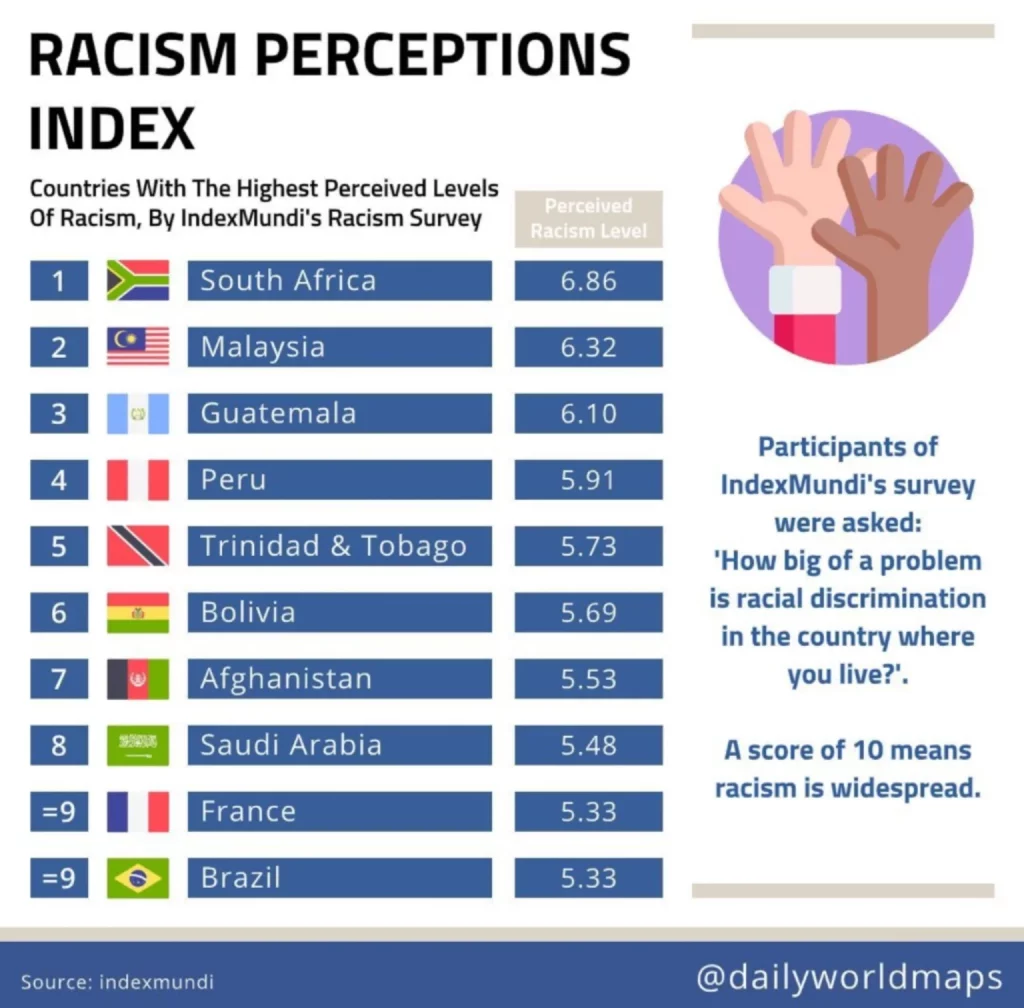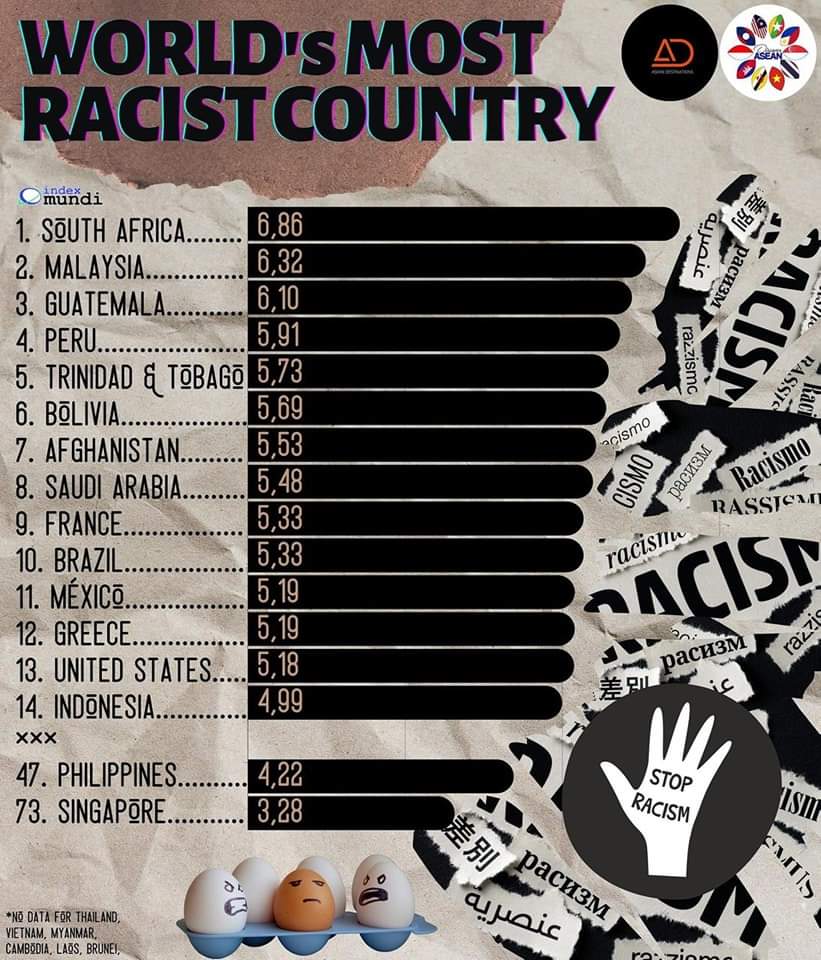Racial discrimination in Malaysia is a very touchy subject even in the 21st century. It’s one thing for Malaysians to be racist with each other but when that racial discrimination gets global attention, Malaysians do not take it lightly.

According to a recent global survey done by a data portal, Indexmundi, Malaysia ranked at 2nd place for racial discrimination, behind South Africa.

Problem Explanation
Racial discrimination is a deeply rooted issue that has profound consequences for individuals, communities, and the overall fabric of society. Here are key reasons why racial discrimination in a country is considered a problem:
- Violation of Human Rights: Racial discrimination constitutes a violation of basic human rights, denying individuals the right to equal treatment, dignity, and freedom from discrimination.
- Undermining Social Cohesion: Discrimination based on race fractures social cohesion by creating divisions and fostering a sense of inequality. This can lead to tension, mistrust, and the fragmentation of communities.
- Impact on Mental Health: Racial discrimination has detrimental effects on the mental health of individuals who experience it, leading to stress, anxiety, depression, and other psychological consequences.
- Economic Disparities: Racial discrimination contributes to economic disparities, limiting opportunities for marginalized racial groups in education, employment, and wealth accumulation. This perpetuates cycles of poverty and inequality.
- Reduced Access to Opportunities: Discrimination denies individuals equal access to educational, employment, and advancement opportunities, hindering their personal and professional development.
- Undermining Diversity and Inclusion: Discrimination hampers efforts to build diverse and inclusive societies. Embracing diversity fosters creativity, innovation, and the richness that comes from different perspectives and experiences.
- Legal and Social Injustice: Racial discrimination leads to legal and social injustice, as individuals may face unfair treatment in the legal system, law enforcement, and various institutions.
- Political Instability: Persistent racial discrimination can contribute to political instability, as marginalized groups may face exclusion from political processes and experience systemic inequalities.
- Violence and Conflict: Racial discrimination can escalate into violence and conflict, with discriminatory practices fuelling social unrest and animosities between different racial or ethnic groups.
- Global Reputation: Countries that tolerate or perpetuate racial discrimination may suffer damage to their global reputation, affecting diplomatic relations, trade partnerships, and international cooperation.
Source : Indexmundi
Source : Gempak
The Coverage Malaysia






